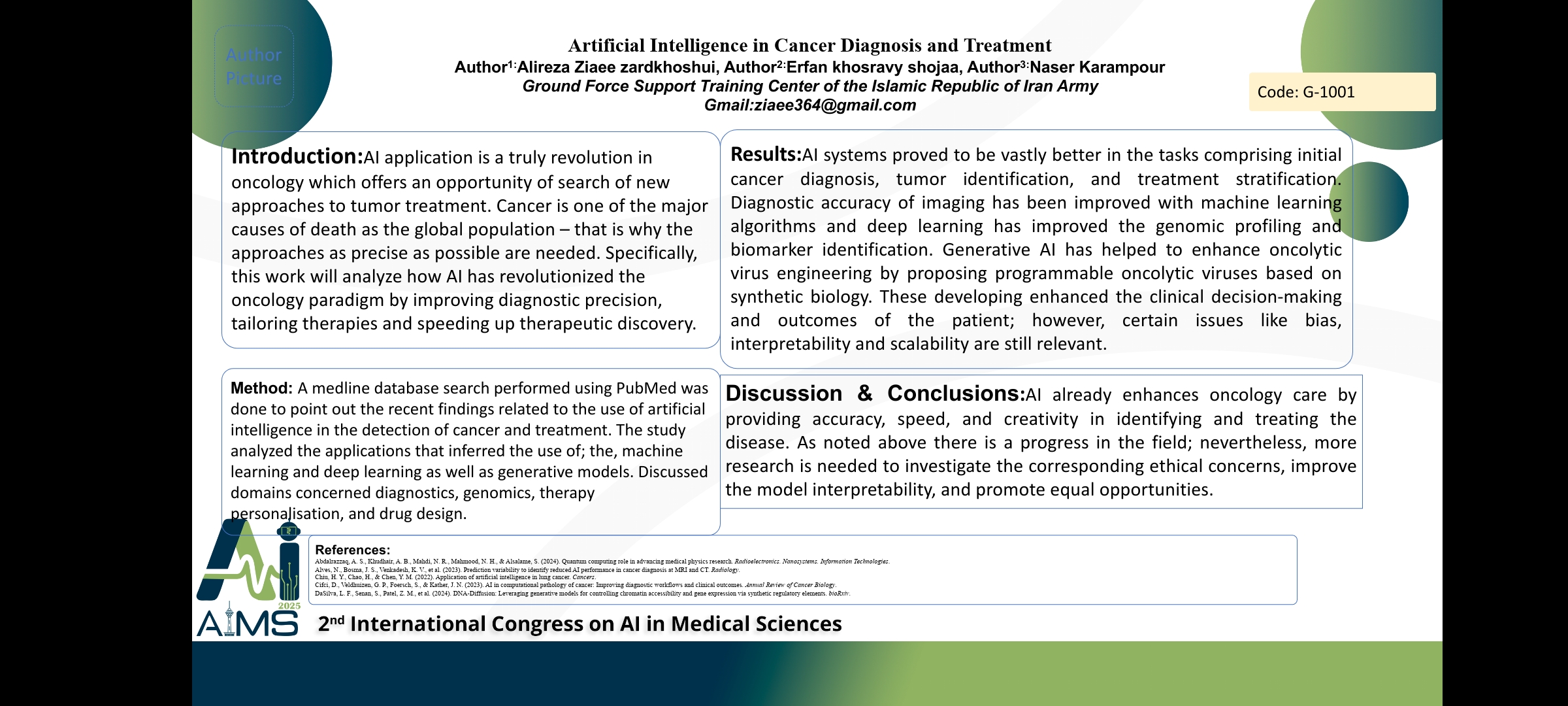Artificial Intelligence in Cancer Diagnosis and Treatment
Code: G-1314
Authors: Alireza Ziaee Zardkhoshuie ℗, Erfan Khosravy Shoja, Naser Karampur *
Schedule: Not Scheduled!
Tag: Cancer Diagnosis & Treatment
Download: Download Poster
Abstract:
Abstract
Background and aims: AI application is a truly revolution in oncology which offers an opportunity of search of new approaches to tumor treatment. Cancer is one of the major causes of death as the global population – that is why the approaches as precise as possible are needed. Specifically, this work will analyze how AI has revolutionized the oncology paradigm by improving diagnostic precision, tailoring therapies and speeding up therapeutic discovery. Method: A medline database search performed using PubMed was done to point out the recent findings related to the use of artificial intelligence in the detection of cancer and treatment. The study analyzed the applications that inferred the use of; the, machine learning and deep learning as well as generative models. Discussed domains concerned diagnostics, genomics, therapy personalisation, and drug design. The literature search was focused on the articles published after 2020 so as to identify the most recent technologies. Results: AI systems proved to be vastly better in the tasks comprising initial cancer diagnosis, tumor identification, and treatment stratification. Diagnostic accuracy of imaging has been improved with machine learning algorithms and deep learning has improved the genomic profiling and biomarker identification. Generative AI has helped to enhance oncolytic virus engineering by proposing programmable oncolytic viruses based on synthetic biology. These developing enhanced the clinical decision-making and outcomes of the patient; however, certain issues like bias, interpretability and scalability are still relevant. Conclusion: AI already enhances oncology care by providing accuracy, speed, and creativity in identifying and treating the disease. As noted above there is a progress in the field; nevertheless, more research is needed to investigate the corresponding ethical concerns, improve the model interpretability, and promote equal opportunities. There is therefore a need to embrace AI in the treatment of cancer to enhance the future advancements of the patient’s survival rates that will be driven by very customized treatments.
Keywords
Artificial Intelligence, Cancer, Diagnosis, Treatment, Innovation
